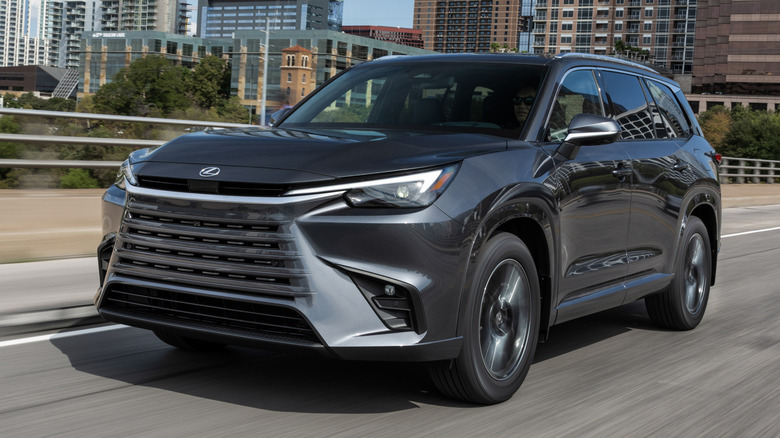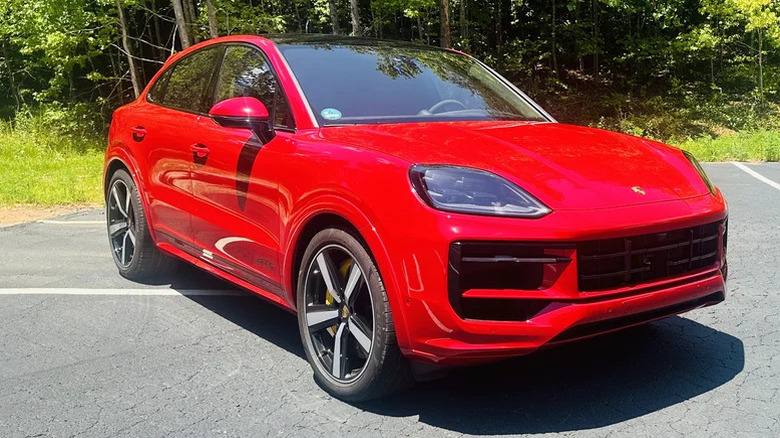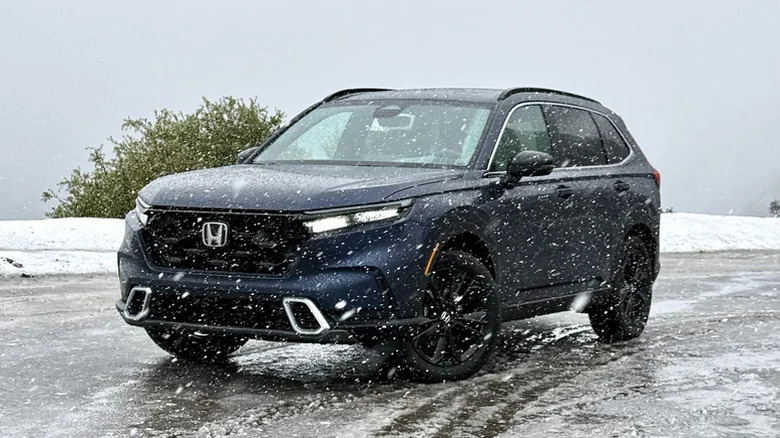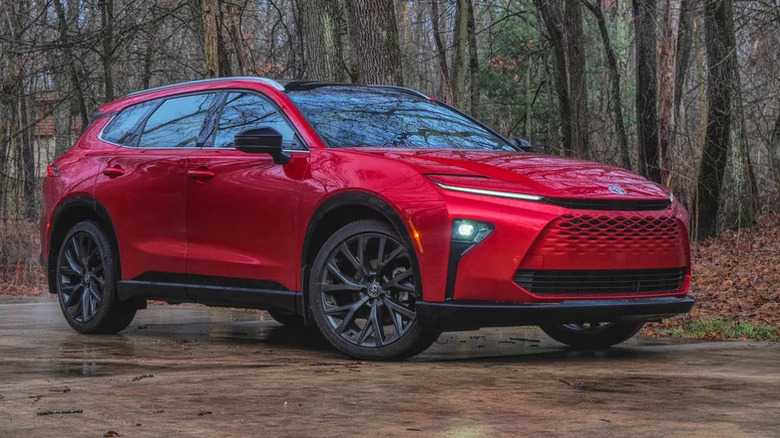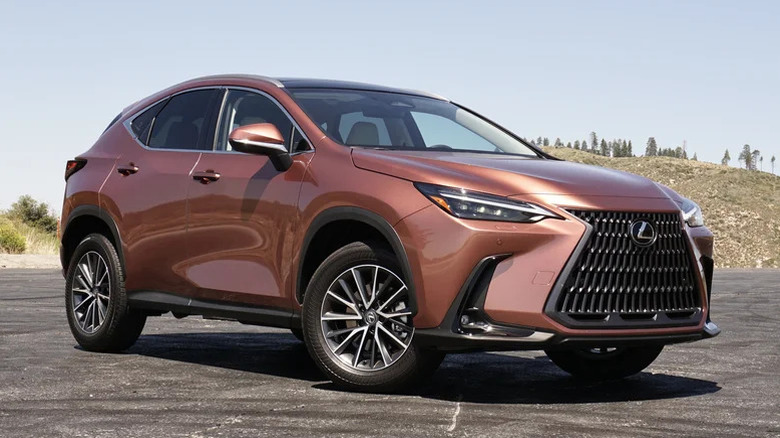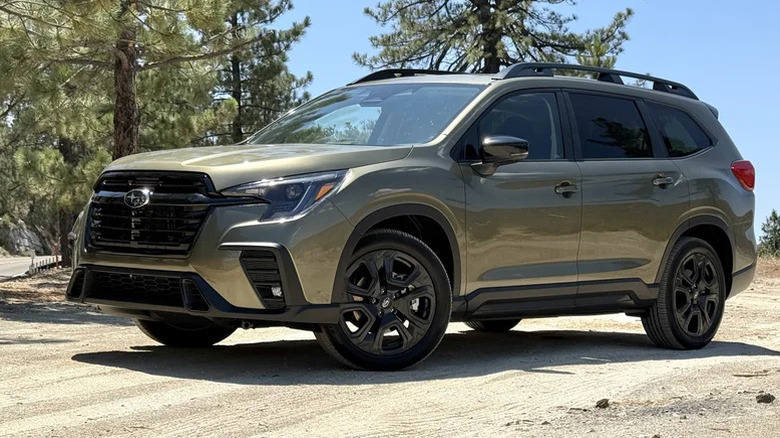These Are The Most Reliable SUV Brands According To Consumer Reports
Buyers looking for a new car are facing higher prices than ever, with the average new car price in September 2025 hitting $50,080 according to KBB. That's the highest average price on record, beating even the averages seen during the height of the post-pandemic chip shortages.
Further complicating matters, today's car buyers have a wide array of powertrain options to pick from, with hybrid and pure-electric models offered alongside traditional gasoline and diesel cars. High prices and changing powertrain options make reliability a particularly important consideration for many buyers, and a few brands in the SUV market stand out as offering more consistent reliability than the rest.
We've analyzed data from Consumer Reports' predicted reliability ratings for SUVs, calculating the average score that the outlet gave to each brand. These five brands all emerged as top performers, edging ahead of the competition in their respective segments. To delve deeper into the real-world performance of each brand's current lineup, we've also drawn from the expertise of our review team, who have put SUVs from each top performing carmaker to the test.
Porsche
While Porsche might not be the first manufacturer many buyers associate with ultimate reliability, both its Macan and Cayenne SUVs receive positive feedback in this regard. The Cayenne remains the brand's flagship SUV, and we thought that the GTS variant represented the perfect balance between price and power. The Cayenne arguably remains one of the best looking cars in its class both inside and out, with an interior that's tech heavy but without the overbearingly large screens that can be found in some of its German rivals.
In top-spec form, the Cayenne is also hilariously fast. The Cayenne Turbo GT can hit 60 mph from standstill in just 3.1 seconds. That's just as quick as a Ferrari Enzo, in a car that will still comfortably accommodate the kids and their luggage on the school run. Its top speed is equally outlandish, sitting at 190 mph.
Porsche's smaller SUV, the Macan arrived in all-electric form for the 2025 model year. We gave it an exceptional 10/10 rating, praising its power, handling, and looks, as well as its comfortable, luxurious interior. For buyers who aren't sold on electrification, the German automaker also still offers the Macan with a traditional combustion engine.
Honda
Honda was another high scorer for reliability, although that shouldn't be a surprise to most shoppers. Longevity has formed a core part of Honda's appeal for decades now, and its latest cars haven't done anything to dent its impressive track record. We took the CR-V Hybrid on a trip around California earlier in 2025, and found its interior space and assured handling to be particularly noteworthy. Honda also offers lots of standard safety tech with the car, although we found some of it could be over-sensitive and prone to false alarms. Its promised fuel economy also fell short in our real-world tests, and unlike some of its rivals, it offered no all-electric driving range.
It wasn't a clean sweep for the CR-V Hybrid then, but we still came away impressed overall. Likewise, we found that the 2026 Passport Trailsport was commendably spacious and memorably styled, but it wasn't without its flaws. Again, its fuel economy lagged behind the best in the class, while its all-terrain tires looked the part but resulted in considerable road noise on everyday journeys. Even with their drawbacks, it's easy to see why buyers continue to flock to Honda's SUVs, especially given their continually high predicted reliability ratings.
Toyota
Alongside its core SUV models, Toyota also has a couple of less-known options for buyers to pick from, including the Crown Signia. In top-spec Limited trim, it offers a premium interior that's not far off what you might expect to find in an entry-level Lexus, and its styling is distinctive to boot. In our review of the Crown Signia, we found its powertrain was a bit vanilla considering how quirky the rest of the car was, but at least it should be reliable, much like the rest of Toyota's SUV lineup.
It's impossible to discuss the Japanese automaker's SUVs without mentioning the RAV4. The model has been a major success for Toyota, with over 475,000 examples sold in the U.S. in 2024 alone. The 2025 RAV4 Hybrid is the last model year of the outgoing generation, with Toyota debuting an all-new sixth generation car for the 2026 model year. It's available only in electrified form, either as a mild hybrid or as a plug-in hybrid (PHEV), with its styling, interior tech, and safety tech also given a major overhaul.
Lexus
While even lower-end Lexus SUVs feel premium, its highest-spec models sit firmly in executive limo territory. We spent a week reviewing the 2025 Lexus LX 700h and found its imposing size and four-seat layout an odd combination, even if the two rear seats were extremely comfortable and could recline for an airline-like seating position. The LX also remains highly capable off-road, although we didn't put its all-terrain chops fully to the test during our time with the car.
Although the top-spec LX will certainly be appealing to some, it will be out of budget for the majority of Lexus SUV buyers. Thankfully, more affordable models like the 2025 NX 350h are still luxurious inside, as well as being efficient and feeling sturdily built. However, neither the LX nor the NX that we reviewed were particularly engaging to drive. Plenty of SUVs on the market offer a sporty edge that hides their mass to some degree, but Lexus makes no attempt to hide the heft of its SUV models. That's not necessarily a bad thing though — they remain comfortable and offer a smooth ride, while their high reliability ratings offer added peace of mind to drivers.
Subaru
Owners of Subaru SUVs should be well aware that the brand's knack for making durable, capable SUVs doesn't usually translate into a particularly exciting driving experience. Whether it's the 2025 Forester Hybrid or the three-row 2025 Ascent, the brand's cars won't be challenging the likes of Mazda in terms of driver enjoyment. However, they remain consistently spacious for their respective segments, and they're mostly competitively priced for what they offer.
They're also tricky to beat when it comes to reliability. That might help make up for their flaws in other areas, such as Subaru's Starlink infotainment system, which our Forester Hybrid review highlighted as being a common annoyance with the brand's cars. Subaru's SUV models also tend not to feature the most powerful nor the most efficient engines in their segments, with the hybrid version of the Forester only offering an insignificant efficiency boost over its ICE counterpart. Still, those compromises haven't deterred buyers, with Subaru shifting over 175,000 examples of the Forester in 2024.
